Worldwide Healing Hands has been training physicians, midwives and nurses in Uganda since 2015. We have partnered with Kabale Regional Referral Hospital in supporting an OB/GYN residency program which currently has 4 residents.
Our goal is to decrease preventable maternal and infant mortality by increasing the availability and access to skilled obstetric care. Our training programs include Helping Babies Breathe, Helping Mothers Survive, Obstetric ultrasound and prevention of cervical cancer.
Kabale Regional Referral Hospital is a 280-bed hospital located in Kabale Municipality in Southwestern Uganda, approximately 426 kilometers from Kampala. The hospital serves a population of about 2 million people in the districts of Kabale, Kisoro, Rukungiri, Kanungu,and some parts of Ntungamo, as well as people from neighboring countries of Rwanda and the Democratic Republic of Congo.
Uganda has a high maternal mortality ratio of 438/100,000 live births and we believe it may be even higher in the Kabale region. We have been invited to work here by the Uganda Ministry of Health.
We believe that training should not just be stand-alone presentations, but also be a part of building institutional capacity to provide for the hospital’s own future training needs (e.g. training the trainer). We view our Ugandan colleagues as full and capable partners, and by working together we can build local capacity and sustainability.
We would like to reinforce and build upon the training programs that we have already introduced including Helping Babies Breathe, Helping Mothers Survive, Obstetric ultrasound and prevention of cervical cancer.

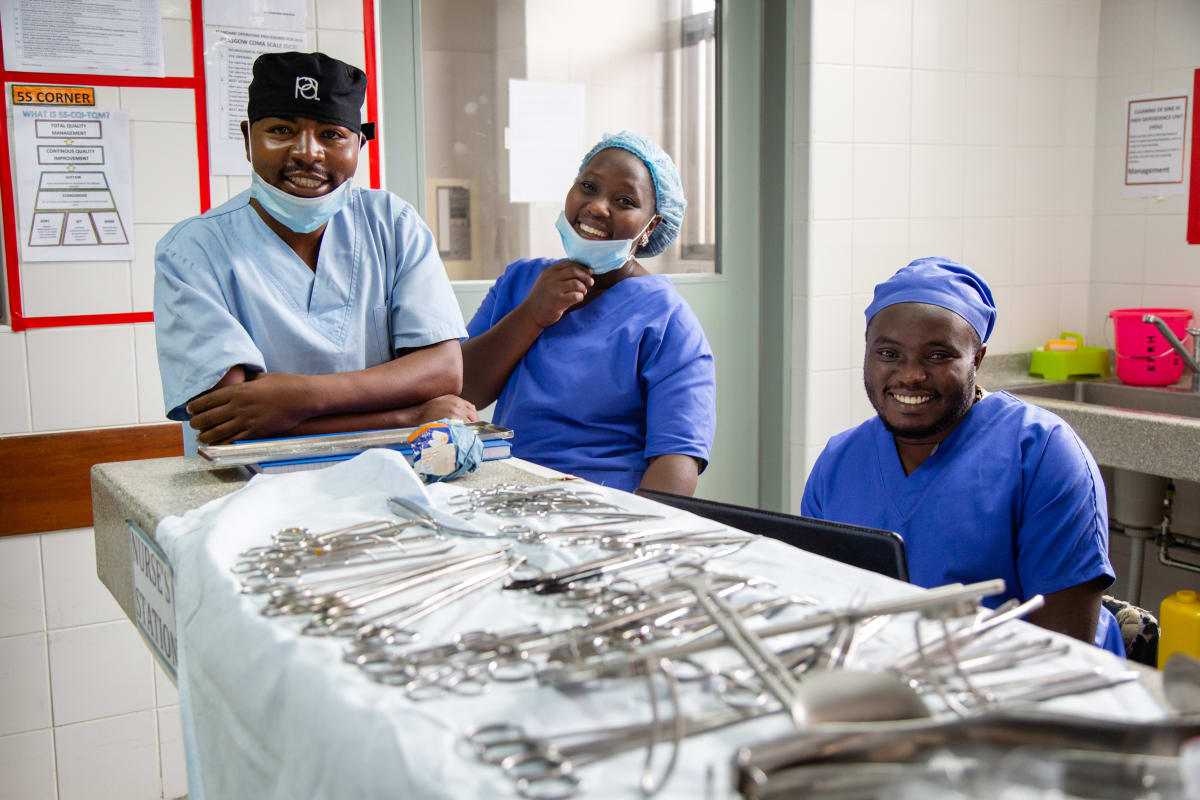
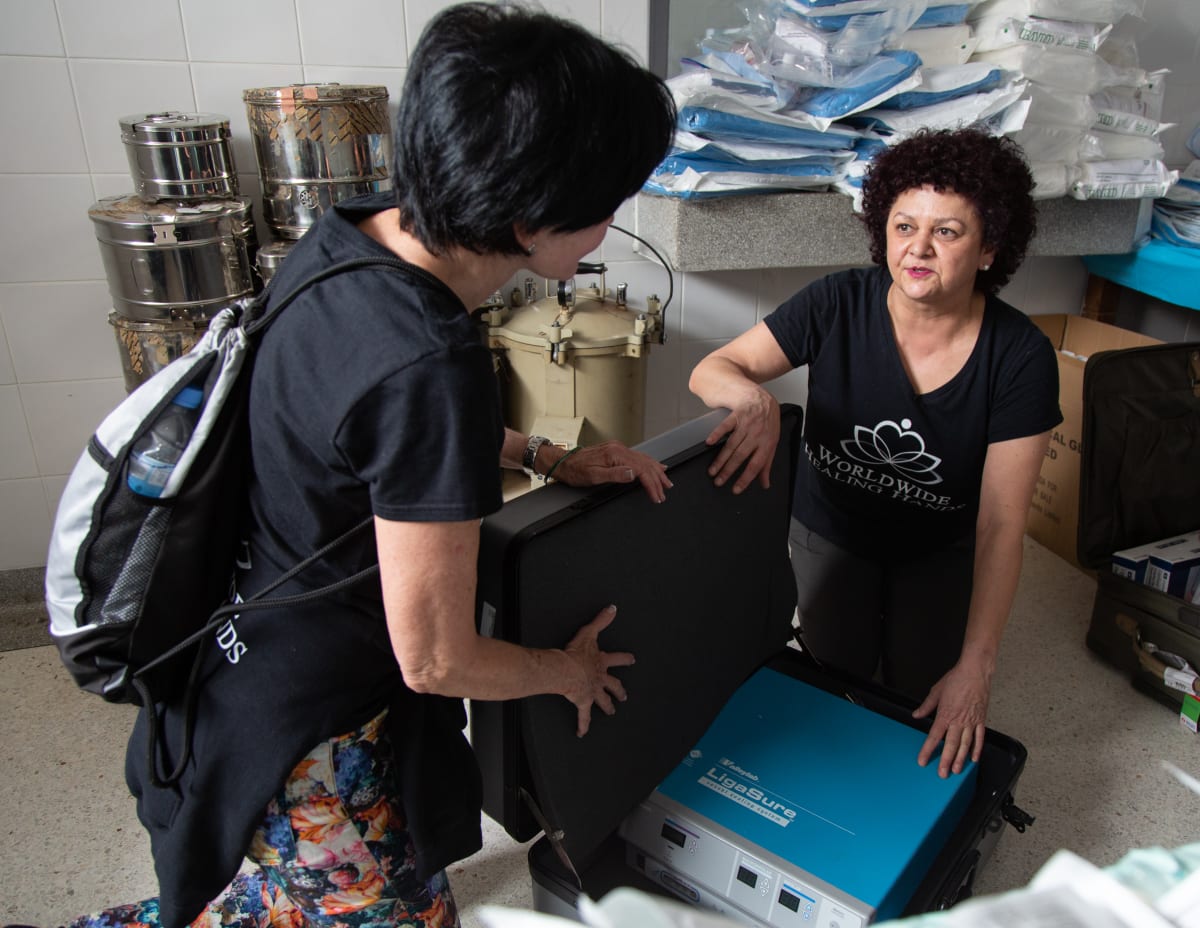
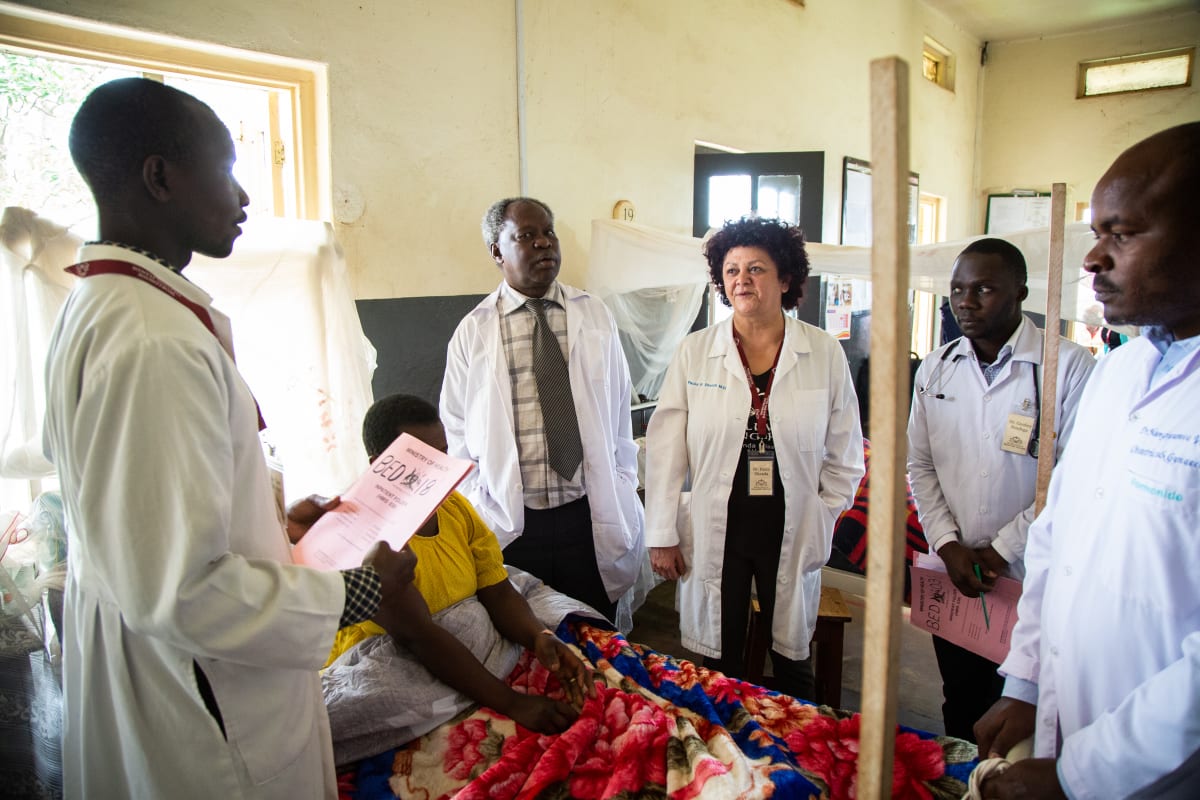
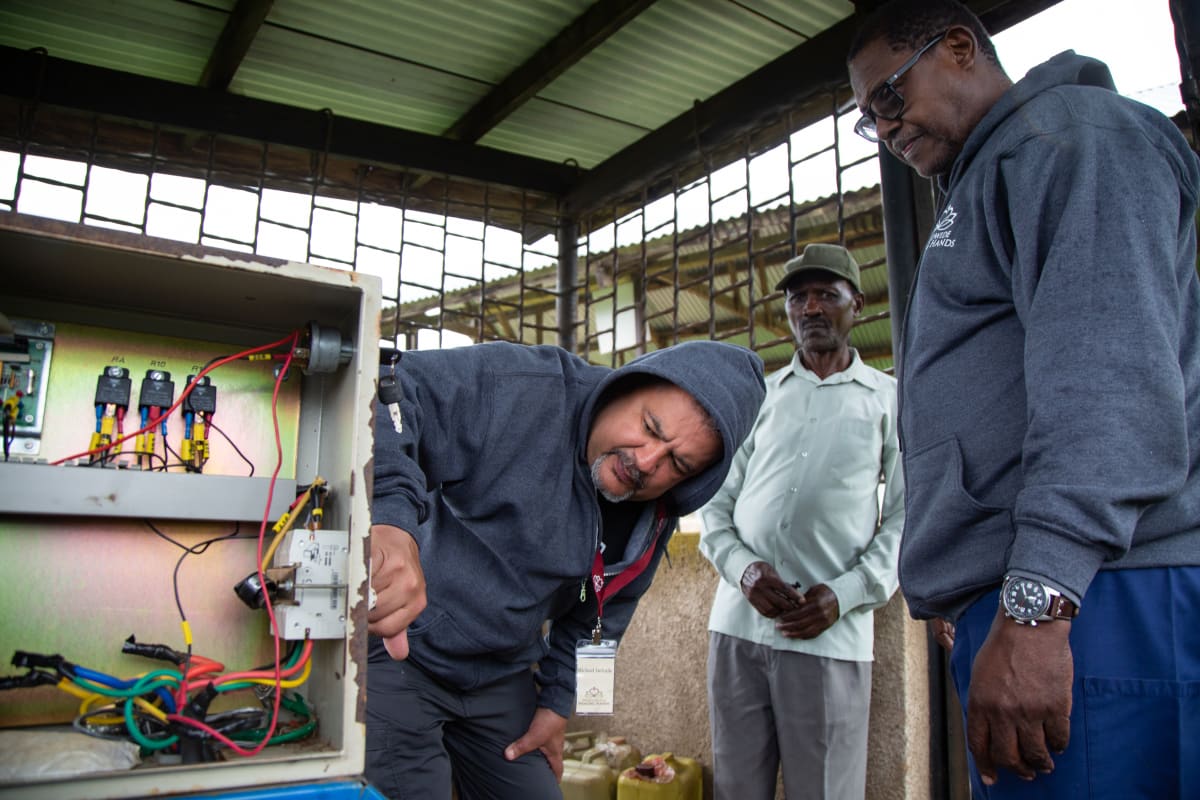
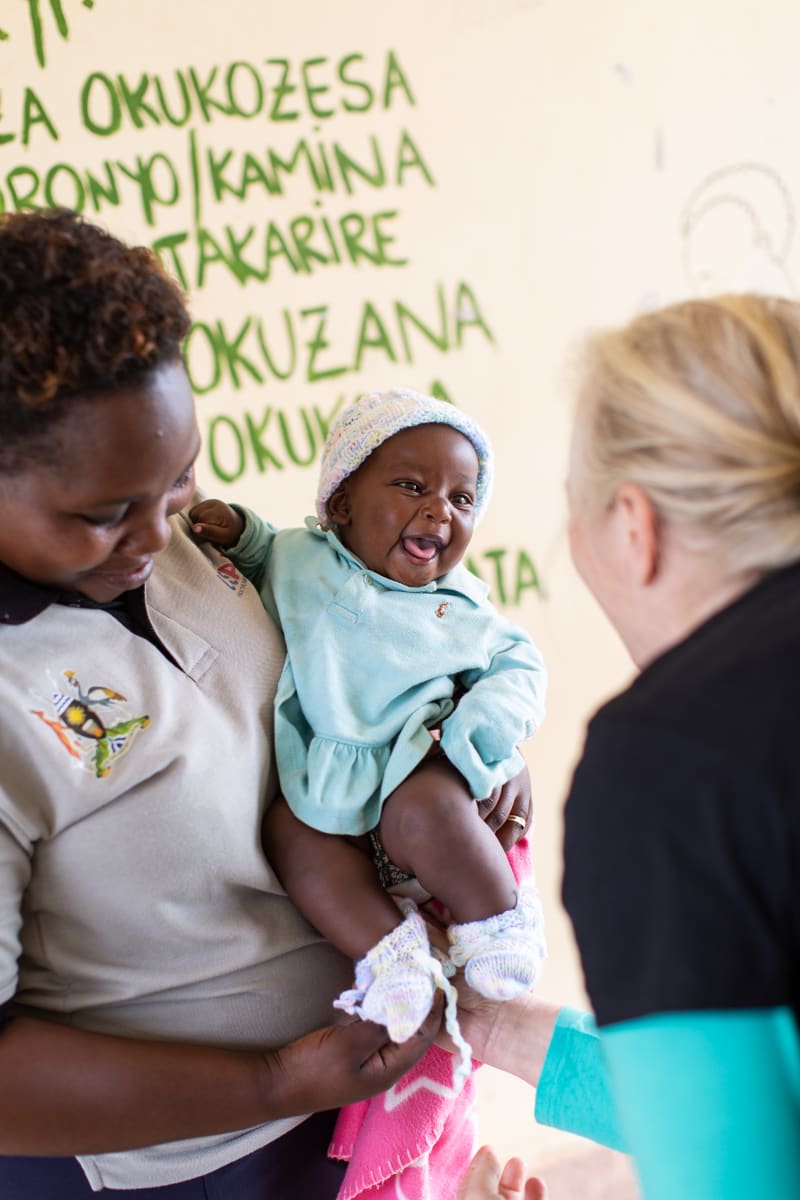
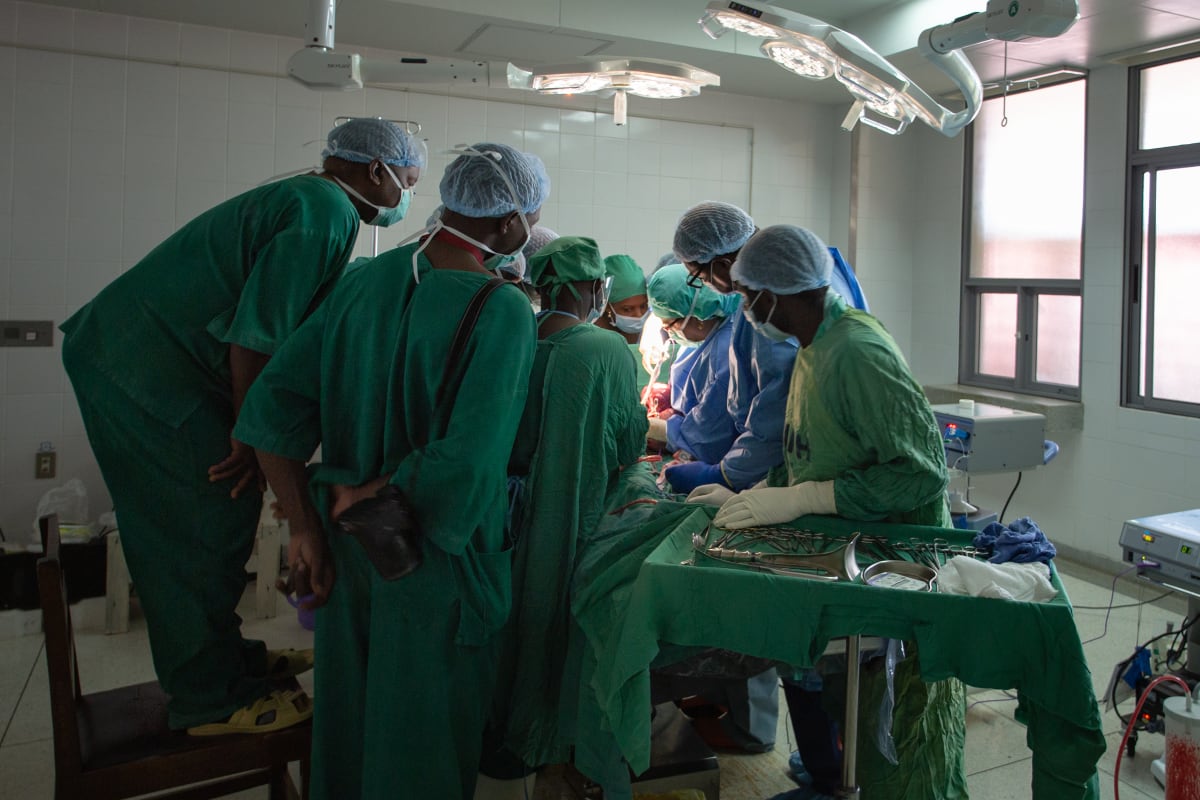








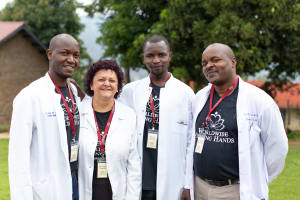
BACKGROUND AND OBJECTIVES OF THIS MISSION:
For this 2019 mission in Uganda, Worldwide Healing Hands (WHH) partnered with Kabale Regional Referral Hospital for the fourth year. We believe that training should not just be stand-alone presentations, but also be a part of building institutional capacity to provide for the hospital’s own future training needs (e.g. training the trainer). We view our Ugandan colleagues as full and capable partners, and by working together we can build local capacity and sustainability.
“Kabale Regional Referral Hospital is a 280-bed hospital located in Kabale Municipality and serves a population of about 2 million people in the districts of Kabale, Kisoro, Rukungiri, Kanungu,and some parts of Ntungamo, as well as people from neighboring countries of Rwanda and the Democratic Republic of Congo.
The mission of the hospital is to provide quality and sustainable, general and specialized, health services to all people in Kigezi region.”
Kabale Regional Referral Hospital is one of 14 Regional Referral Hospitals in Uganda. It serves 5 districts. They have 30 midwives, 2 OB/GYN attendings and 4 OB/GYN residents (three third year and one second year). The government does not support postgraduate education (residency programs). They do 4916 births per year and have a 24% C/S rate.
MISSION OBJECTIVES:
● Decrease preventable maternal and infant mortality by increasing the availability and access to skilled obstetric, neonatal and gynecologic care. Improving women’s health care has always been a priority for WHH.
● Train Kabale Hospital OB/GYN residents GYN surgery
● Prevent cervical cancer by increasing awareness and providing further training. Travel to various health centers to raise awareness about cervical cancer prevention.
● Teach neonatal resuscitation with Helping Babies Breathe
● Expand services in partnership with xRapid for diagnosis of Malaria.
● Evaluate the needs for power at Muko Health Center where we served in 2015.
GYN SURGERY:
• Kabale OB/GYN residents identified patients in need of GYN surgery mainly directed at the need for abdominal and vaginal hysterectomy.
• Dr. Turyasingura Godwin, Chief of OB/GYN did an excellent job of guiding his residents to correctly identify the indications and alternatives for surgery.
• We conducted a pre-operative evaluation of the patients selected for surgery, mainly abdominal and vaginal hysterectomy.
• With OB/GYN residents assisting we performed the following surgeries for appropriate indications:
o 3 vaginal hysterectomies, one with anterior colporrhaphy
o 5 abdominal hysterectomies
o 1 vaginal myomectomy of a cervical fibroid
o 1 salpingo-oophorectomy for torsion of an adnexal cyst
o 1 hysteroscopic removal of a lost IUD.
• We strengthened the OB/GYN residents’ surgical abilities by teaching surgical skills including surgical knot tying.
• We taught the OB/GYN residents’ how to use a LigaSure vessel sealer thanks to the generosity of Adventist Clear Lake and Covidien.
CERVICAL CANCER PREVENTION:
Cervical cancer is the number one cause of cancer-related deaths in developing countries. By 2035, it is expected to be the number one cause of death for women worldwide. Ninety percent of these women live in underserved countries. This disease is preventable. WHH teaches the single visit approach so that women, no matter where they live, can be screened and treated to prevent this deadly disease.
Key Cervical Cancer Statistics in Uganda:
• About 6,413 new cervical cancer recorded cases diagnosed annually Uganda during 2018.
• About 4,301 documented cervical cancer deaths occurred in Uganda during 2018.
• Human Papillomavirus (HPV) ranks as the 1st leading cause of female cancer in Uganda.
• Cervical cancer is the 1st most common female cancer in women ages 15 – 44 years of age in Uganda.
• Across many health districts in Uganda, vaccination programs exist, delivered in schools and communities to only girls age 10 years.
Worldwide Healing Hands Outreach and Networking
Key Objective:
• Convene Cervical Cancer Discussions for the purpose of understanding their knowledge and health care practices, currently delivered at Kabale School of Medicine and their surrounding health centers.
• Provide current cervical cancer prevention information, materials, and supplies.
• Finally, our goal was to increase the relationship and collaboration between the health centers and Kabale School of Medicine, thus improving overall care and increased prevention of cervical cancer in this region.
Participating Health Care Facilities:
• Kabale University Hospital School of Medicine is the central resource for Worldwide Healing Hands Cervical Cancer Prevention Initiative since 2016.
• Muko Health Center IV, a government health facility.
• Bwama Health Center III, a government health facility.
• Rugarama Hospital, a private Presbyterian facility.
• Rushoroza Health Center IV, a government health facility.
• Kamukira Health Center IV, a government health facility.
• Rubaye Health Center IV, a government health facility.
• Bukinda Health Center IV, a government health facility.
• Maziba Health Center IV, a government health facility.
• Bufundi Health Center III, a government health facility.
EXPANDING xRAPID MALARIA SURVEILLANCE:
Background:
xRapid Malaria is a revolutionary malaria test that uses AI and can diagnose quicker, cheaper and as accurately as conventional tools. xRapid was developed to be progressive, effective and user-friendly in both laboratory and field examinations for detecting patients who are afflicted with malaria.
During the springtime of 2018, xRapid Malaria accompanied Worldwide Healing Hands, in a partnership to establish an early surveillance project for the detection and reduction of malaria at Kabale University School of Medicine and its surrounding system of Health Centers.
During our Worldwide Healing Hands visit, March 2019, two new microscopes, three iphones and numerous slide cradles were added to the malaria network. Kabale University Hospital remains the core center, with satellite sites at three health centers; Muko, Bwama, and Rubayas.
HELPING BABIES BREATHE:
Helping Babies Breathe (HBB) is an evidence-based educational program to teach neonatal resuscitation techniques in resource-limited areas.
Our objective is to train birth attendants in the essential skills of newborn resuscitation, with the goal of having at least one person who is skilled in neonatal resuscitation at the birth of every baby.
A key concept of HBB is The Golden Minute: Within one minute of birth, a baby should be breathing well or should be ventilated with a bag and mask. The Golden Minute identifies the steps that a birth attendant must take immediately after birth to evaluate the baby and stimulate breathing.
This program took over 60 hours to develop. In addition, a producer put in over 300 hours to create a video. This video was donated to the trainees to continue to practice and teach the program. We previously donated the baby mannequins for ongoing teaching.
During this mission, we trained a total of 140 participants:
• Nursing students: 68
• Medical students: 10
• Student midwives: 7
• Midwives: 2
• Nurses: 8
• M/O: 11
• N/O: 2
• D/N: 1
• Other: 31
In addition, we were joined by an HBB trainer and identified one other potential trainer. The students were so enthusiastic and open to teaching. The staff were very appreciative of training and the opportunity to practice the skills. We were impressed with the skills the participants demonstrated. It was particularly gratifying to see participants working with and teaching their fellow students.
MUKO HEALTH CENTER ENERGY SUPPLY:
Reliable energy is vital to providing safe and effective health care especially in the maternity ward. Muko Health Center got hydro-electric power after our visit in 2015.
To help to resolve this issue, WHH installed a dedicated EMERGENCY power system for the maternity ward at Muko Health Center. This includes a dedicated solar panel and battery with LED lights for the maternity unit. The costs of labor and supplies were valued at $4,000. This was donated by Worldwide Healing Hands and installed under the direction of volunteer Michael DelValle. We are grateful to Mbabazi Alex Bagambe, the electrical engineer at Muko Health Center and his staff for their assistance in installing the emergency power system.
WHH ACCOMPLISHMENTS:
● WHH met with the key people from each organization to continue to establish a partnership between SUNY-Upstate Medical University, Kabale University, Kabale Regional Hospital and Worldwide Healing Hands.
● WHH is currently supporting all three third year residents and one second year resident. WHH pays their tuition for their OB/GYN training at $1800 per resident, per year. The third-year residents will graduate pending their examination in May 2019.
● WHH hopes that we can attract more OB/GYN residents by supporting them financially.
● WHH is also paying for the education of 2 students to become nurses through the generous donations of our volunteers.
● Trained 140 students in Helping Babies Breathe
● Donated 1 additional Thermo-coagulator (value $1500) and delivered a replacement part for the unit they already have.
● Performed multiple GYN surgeries with the OB/GYN residents.
● Trained the OB/GYN residents in surgical knot tying.
● Diagnosed patient with a rare condition of Mayor Rokitansky Kuster Hauser syndrome
● Introduced and donated a LigaSure vessel sealing technology for GYN surgery.
● Repaired and maintained the surgical equipment at Kabale Hospital
● Traveled to nine Health Centers to raise awareness about cervical cancer prevention.
● Expanded xRapid testing for Malaria.
● Provided Muko Heath Center with emergency lighting for maternity care.